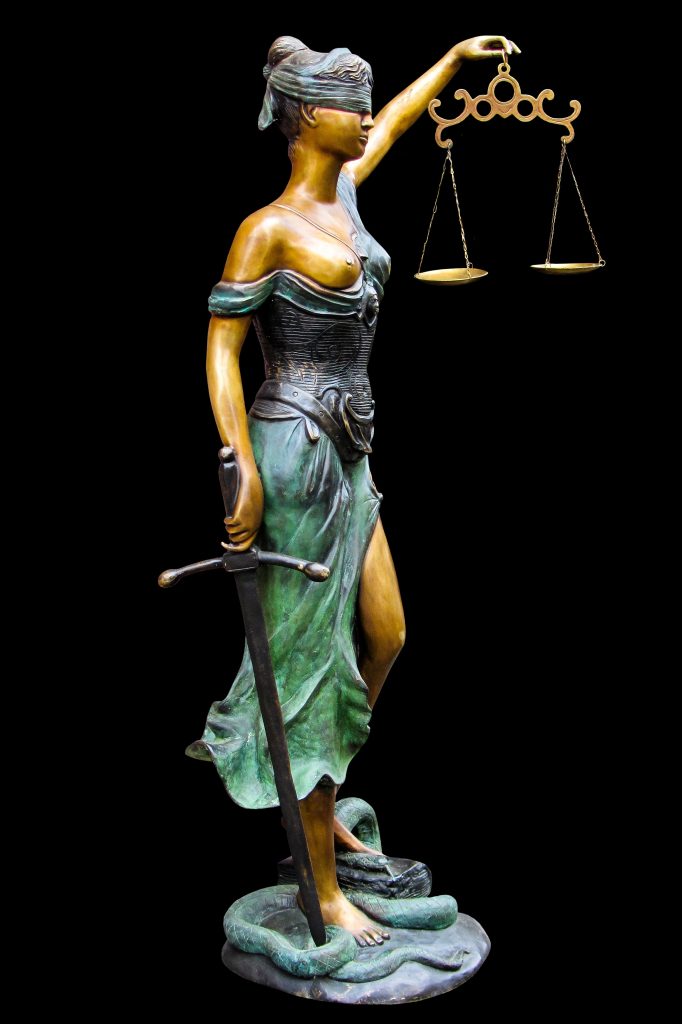 Car accidents can be distressing, and the aftermath becomes even more complex when multiple vehicles are involved. Such was the case with Lisa Watson, Shelley Tannehill, and Melissa Smith after a three-car collision on Interstate-10 in New Orleans. Determining liability in these situations is no easy task, as demonstrated in this legal battle revolving around whether summary judgment was warranted for the dismissal of claims against the driver of the middle car. Let’s delve into the intricacies of this case and highlight the significance of seeking professional legal advice when facing similar situations.
Car accidents can be distressing, and the aftermath becomes even more complex when multiple vehicles are involved. Such was the case with Lisa Watson, Shelley Tannehill, and Melissa Smith after a three-car collision on Interstate-10 in New Orleans. Determining liability in these situations is no easy task, as demonstrated in this legal battle revolving around whether summary judgment was warranted for the dismissal of claims against the driver of the middle car. Let’s delve into the intricacies of this case and highlight the significance of seeking professional legal advice when facing similar situations.
While driving on Interstate-10 in New Orleans, Lisa Watson was followed by Shelley Tannehill and a car driven by Melissa Smith. After Watson came to a complete stop, Smith’s vehicle hit the back of Tannehill’s vehicle, which then hit Watson’s car. Watson filed a lawsuit against Smith and her insurer and Tannehill and her insurer. Watson claimed Tannehill had been following her too closely and claimed she was hit from behind after the Smith car rear-ended Tannehill when Tannehill suddenly stopped.
Tannehill filed a summary judgment motion claiming she was completely stopped when the Smith vehicle hit her. Therefore, the only time she hit Watson’s vehicle was because the Smith vehicle hit her. Tannehill provided excerpts from depositions and the police report to support her claim. Watson argued there was a factual dispute about whether Tannehill hit her car before Smith hit Tannehill’s car. The trial court granted Tannehill’s summary judgment motion and dismissed Watson’s claims against Tannehill. Watson appealed.
 Louisiana Personal Injury Lawyer Blog
Louisiana Personal Injury Lawyer Blog


 Losing a loved one is an unimaginable tragedy, and while financial compensation cannot fill the void left by their absence, it can provide support during challenging times. The following case involves the tragic situation of parents whose seaman son died. Although the deceased seaman’s father tried to recover damages from his son’s death, he ultimately proved unsuccessful.
Losing a loved one is an unimaginable tragedy, and while financial compensation cannot fill the void left by their absence, it can provide support during challenging times. The following case involves the tragic situation of parents whose seaman son died. Although the deceased seaman’s father tried to recover damages from his son’s death, he ultimately proved unsuccessful.  Everyone learns a lot of life lessons during high school. Sometimes these lessons are learned the hard way and result from the consequences of inappropriate behavior. This is even more the case today, where images can be quickly posted online for the public to see. In this case, a high school cheerleader found herself in an unfortunate situation after posting an inappropriate picture of herself online.
Everyone learns a lot of life lessons during high school. Sometimes these lessons are learned the hard way and result from the consequences of inappropriate behavior. This is even more the case today, where images can be quickly posted online for the public to see. In this case, a high school cheerleader found herself in an unfortunate situation after posting an inappropriate picture of herself online.  When renting an apartment, tenants expect a safe and secure living environment. However, what happens when an accident occurs due to negligence by the apartment owner and management company? If a leaky roof in your apartment injures you, can you make a claim for your injuries? The following lawsuit answers that question.
When renting an apartment, tenants expect a safe and secure living environment. However, what happens when an accident occurs due to negligence by the apartment owner and management company? If a leaky roof in your apartment injures you, can you make a claim for your injuries? The following lawsuit answers that question.  Medical emergencies call for swift and professional response from emergency medical personnel. However, what happens when a patient sustains additional injuries during transit due to unforeseen circumstances? The following case highlights the complexities of dealing with immunity laws for government employees and emphasizes the importance of seeking legal counsel to navigate statutory requirements and potential exceptions when considering legal action in such situations.
Medical emergencies call for swift and professional response from emergency medical personnel. However, what happens when a patient sustains additional injuries during transit due to unforeseen circumstances? The following case highlights the complexities of dealing with immunity laws for government employees and emphasizes the importance of seeking legal counsel to navigate statutory requirements and potential exceptions when considering legal action in such situations. Working in a courthouse may seem like an environment where the rule of law reigns supreme, but even within its hallowed halls, employees can encounter workplace issues and retaliation. In the following case, a Louisiana State Judge became embroiled in a dispute involving a law clerk’s alleged illegal and unethical behavior. As a result of this disagreement and the actions taken by her colleagues, the Judge claimed she suffered unfair treatment, false accusations, and the violation of her constitutional rights. A lawsuit was filed under 42 U.S.C. § 1983, alleging retaliation for exercising her First Amendment right to freedom of speech. However, the courts were tasked with determining whether her claims truly amounted to violating her constitutional rights or merely involving unfriendly conduct.
Working in a courthouse may seem like an environment where the rule of law reigns supreme, but even within its hallowed halls, employees can encounter workplace issues and retaliation. In the following case, a Louisiana State Judge became embroiled in a dispute involving a law clerk’s alleged illegal and unethical behavior. As a result of this disagreement and the actions taken by her colleagues, the Judge claimed she suffered unfair treatment, false accusations, and the violation of her constitutional rights. A lawsuit was filed under 42 U.S.C. § 1983, alleging retaliation for exercising her First Amendment right to freedom of speech. However, the courts were tasked with determining whether her claims truly amounted to violating her constitutional rights or merely involving unfriendly conduct. Many of us provide support to elderly folks in our lives through our time and money. We expect the utmost attention and respect when we send a loved one to a care facility. Sometimes accidents happen, whether by negligence or by accident, that result in injury to patients. Regardless of the cause of injury, a lawsuit can help hold medical professionals responsible for the type of care they provide. The difference between a tort and a medical malpractice claim for nursing home injuries is examined in the following case.
Many of us provide support to elderly folks in our lives through our time and money. We expect the utmost attention and respect when we send a loved one to a care facility. Sometimes accidents happen, whether by negligence or by accident, that result in injury to patients. Regardless of the cause of injury, a lawsuit can help hold medical professionals responsible for the type of care they provide. The difference between a tort and a medical malpractice claim for nursing home injuries is examined in the following case.  People often assume that pedestrians always have the right of way. While this adage is partially true, pedestrians who avoid proper safety protocols can be found more at fault for an injury than the car that struck them. If avoiding physical trauma is not motivation enough to look both ways before crossing the street, the following lawsuit may encourage you to take proactive steps to avoid being hit.
People often assume that pedestrians always have the right of way. While this adage is partially true, pedestrians who avoid proper safety protocols can be found more at fault for an injury than the car that struck them. If avoiding physical trauma is not motivation enough to look both ways before crossing the street, the following lawsuit may encourage you to take proactive steps to avoid being hit. Can a trial court’s approval of a settlement agreement in a property contamination lawsuit be upheld without determining remediation requirements and the deposit of funds into the court registry? This question lies at the heart of the following case, which features an appeal of the trial court’s judgment approving a settlement agreement regarding property contamination caused by historic oil and gas operations. The appeal raises issues of statutory interpretation and whether the trial court erred in its application of the law. The resolution of this question has significant implications for the approval process of settlement agreements in similar cases governed by
Can a trial court’s approval of a settlement agreement in a property contamination lawsuit be upheld without determining remediation requirements and the deposit of funds into the court registry? This question lies at the heart of the following case, which features an appeal of the trial court’s judgment approving a settlement agreement regarding property contamination caused by historic oil and gas operations. The appeal raises issues of statutory interpretation and whether the trial court erred in its application of the law. The resolution of this question has significant implications for the approval process of settlement agreements in similar cases governed by  Vicarious liability in the context of work-related accidents is a complex legal issue that necessitates careful analysis of the state’s code. The case of Sarah Barber serves as a compelling example of the potential consequences when a government employee causes an accident while performing their job duties. Understanding the nuances of vicarious liability and the specific provisions governing such cases is essential to determine the employer’s liability for the actions of their employees.
Vicarious liability in the context of work-related accidents is a complex legal issue that necessitates careful analysis of the state’s code. The case of Sarah Barber serves as a compelling example of the potential consequences when a government employee causes an accident while performing their job duties. Understanding the nuances of vicarious liability and the specific provisions governing such cases is essential to determine the employer’s liability for the actions of their employees.